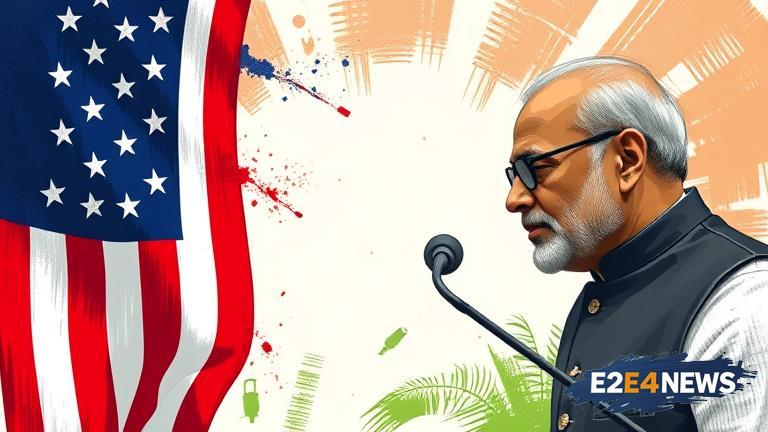The United States has rejected India’s request for tariff talks, government sources revealed on Wednesday. This development comes as a significant setback for India, which has been seeking to resolve trade disputes with the US. The Indian government had proposed talks to discuss tariffs and other trade-related issues, but the US has declined the offer. The rejection is likely to strain relations between the two countries, which have been experiencing increased trade tensions in recent months. The US has imposed tariffs on several Indian products, including steel and aluminum, citing national security concerns. India has retaliated with its own set of tariffs on US goods, including agricultural products and chemicals. The trade tensions between the two nations have been escalating, with both sides imposing tariffs on each other’s goods. The Indian government has been trying to negotiate a resolution to the trade disputes, but the US has been unwilling to engage in talks. The rejection of India’s request for tariff talks is seen as a significant blow to the Indian government’s efforts to resolve the trade disputes. The US has been critical of India’s trade policies, including its high tariffs on imported goods. The US has also been seeking greater access to the Indian market for its goods and services. The Indian government has been resisting US pressure to open up its market, citing concerns about the impact on domestic industries. The trade tensions between the two nations have been affecting bilateral relations, with both sides experiencing increased tensions. The US has been one of India’s largest trading partners, but the trade tensions have been affecting trade volumes. The Indian government has been seeking to diversify its trade relationships and reduce its dependence on the US market. The rejection of India’s request for tariff talks is likely to accelerate this process. The Indian government has been exploring alternative markets for its goods and services, including the European Union and other Asian nations. The trade tensions between the US and India have been affecting not just trade volumes but also investment flows. The US has been one of the largest investors in India, but the trade tensions have been affecting investment decisions. The Indian government has been seeking to attract more investment from other countries, including Japan and South Korea. The rejection of India’s request for tariff talks is seen as a significant setback for the Indian government’s efforts to promote economic growth and development. The Indian government has been facing criticism from domestic industries, which have been affected by the trade tensions. The government has been under pressure to resolve the trade disputes and promote economic growth. The rejection of India’s request for tariff talks is likely to increase pressure on the government to take decisive action to resolve the trade disputes.
